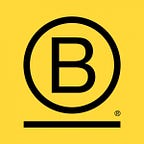AltSchool: A Day as an AltSchool Student
Each Student Has a Daily, Personalized-Learning Playlist
AltSchool students follow a personalized learning schedule, customized daily by their educators.
Photo courtesy of AltSchool
Every day at AltSchool begins and ends with teachers and students in a meeting together. As Carolyn Wilson, AltSchool’s director of education, points out, “Learning is a very social experience. It’s not just learning knowledge and skills. It’s how we use them with others.” Personalized education, she says, is a collaborative process involving both teachers and students.
Whether they plan out their day or talk about a classroom problem, students have the opportunity in these meetings to focus on collaboration and offer something positive to the group.
To encourage social growth, AltSchool doesn’t have conventional grade levels. Students aren’t all able to do the same things just because they were born in the same year, says Wilson. Instead, the students are divided into three broadly defined groups: pre-K, lower elementary and upper elementary. Each group has its own room, but schools provide shared spaces where age groups can learn together. This provides more opportunities for kids to see older students as models or guides and for older kids to become mentors.
“As we teach children to be self-directed and resilient and to act ethically and passionately, being in a mixed-age classroom is really important,” Wilson says.
Kids get their daily assignments from personalized-learning “playlists” on their laptops or iPads. These might include lessons designed around books they’ve mentioned or subjects they’re passionate about, say drones or castles. While playlists are personalized and the school doesn’t use formal classroom periods, each day is structured. Mornings are usually dedicated to core subjects when students gather in small groups or one-on-one with a teacher to focus on reading and math skills. Afternoons are for “project-based learning,” when students are encouraged to dive deeper into areas of interest or focus on specific skills, such as painting or playwriting. They can work alone or collaborate with classmates on research.
AltSchool often recruits experts to teach lessons to groups of students. Artists and musicians are brought in to broaden understanding of a subject area beyond book learning.
“Rather than have a specific time of day when all the students go to one class to dabble in a subject, they’re able to explore with an expert an area that interests them and is tied with a deep study the class is already doing,” says Wilson.
She emphasizes that personalized education for AltSchool students goes well beyond putting lessons on a student’s screen and letting them work on their own. For Wilson, teaching kids effectively is about meeting them where they are and “respecting their pace of learning, respecting their approach to learning and respecting their passion.”
“If we can teach children to look at the world in an entrepreneurial way and empower them to be learners who will use their skills not just to solve problems, but also to connect to the larger world, then maybe we’re on the road to solving the very big challenges we have,” Wilson says.
Learn more about AltSchool and how Max Ventilla’s education innovation compares with the popular Khan Academy’s Salman Khan’s vision.
